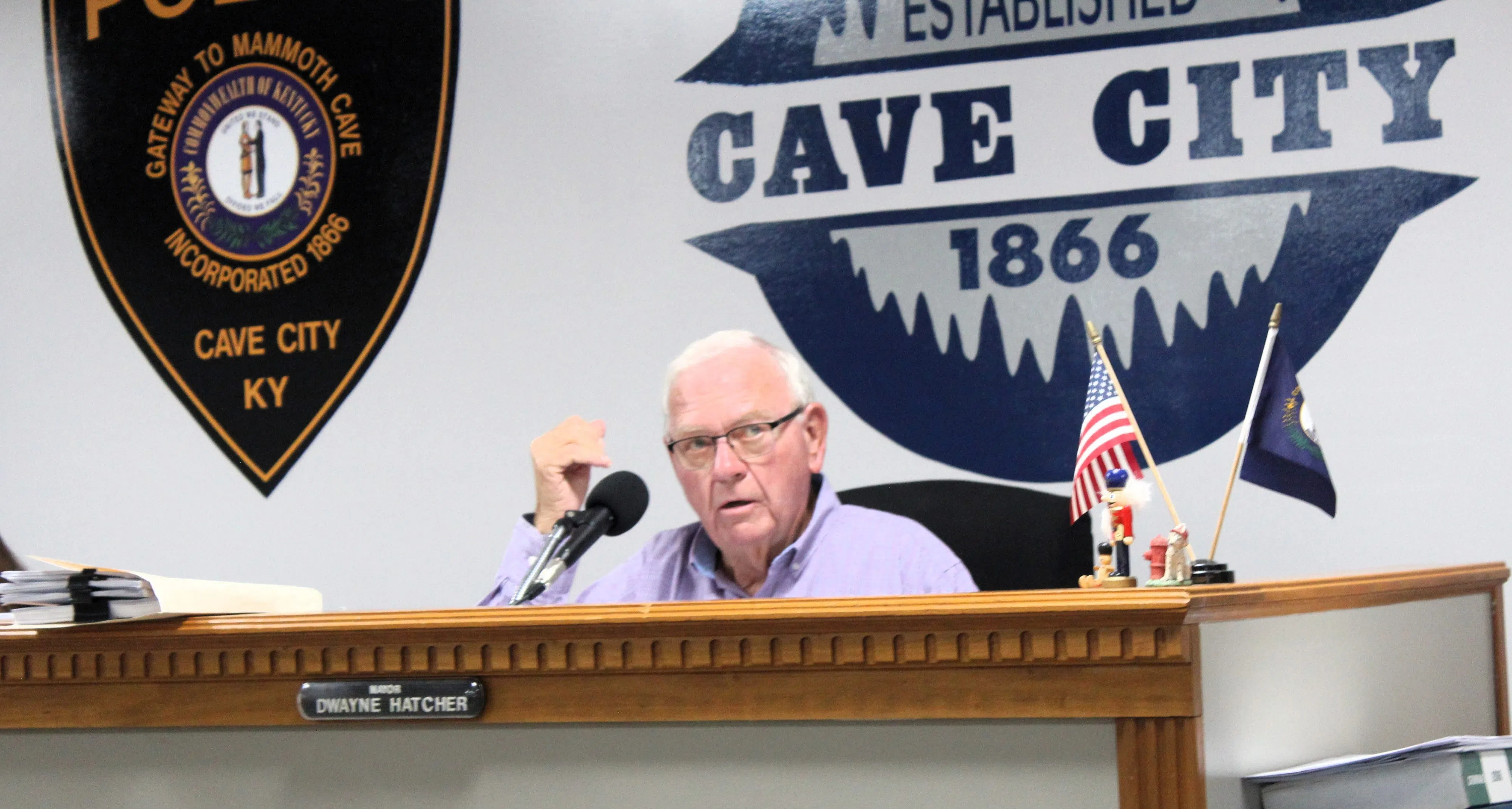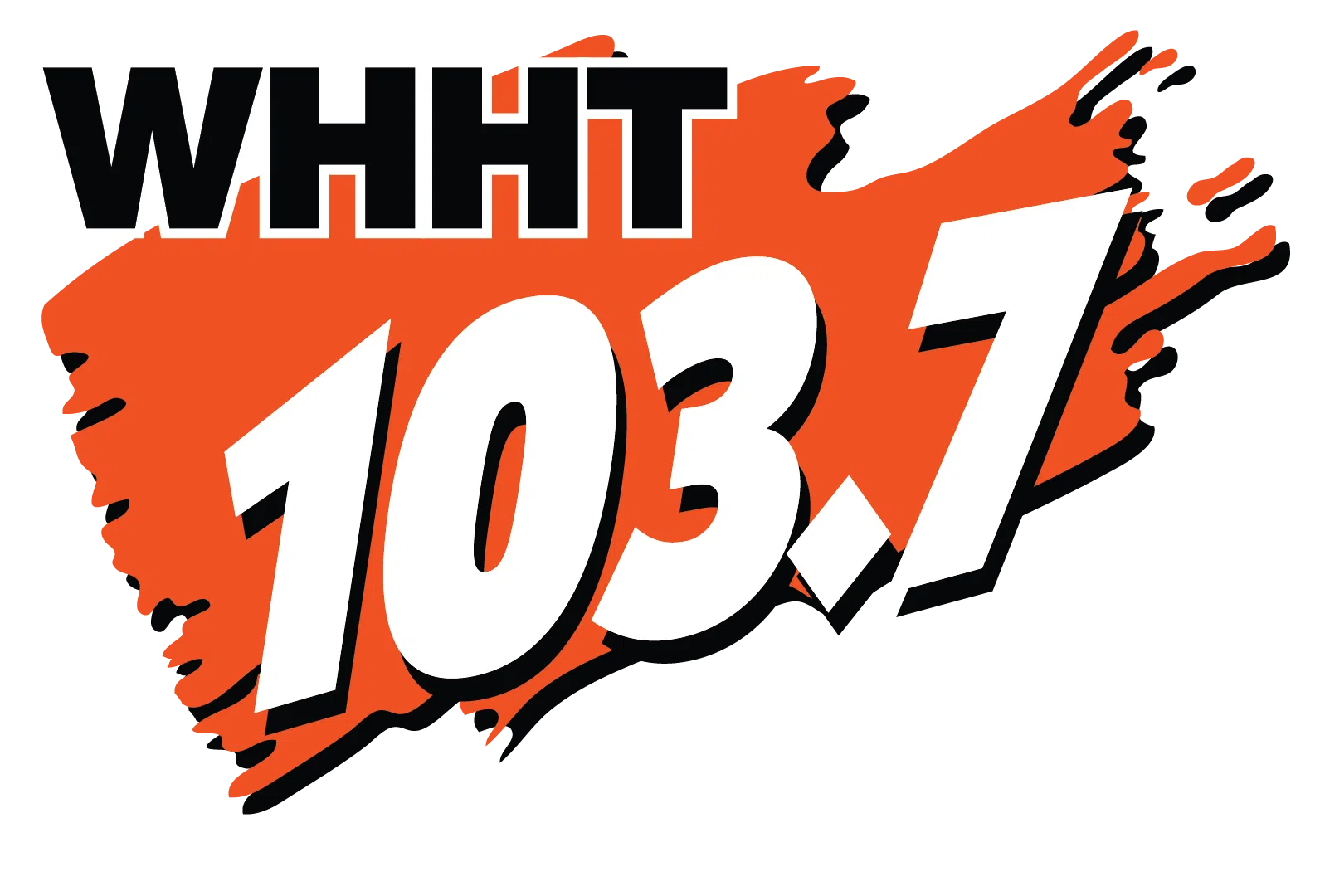By GAGE WILSON
For Glasgow News 1
It was a night full of first readings at the Cave City Council meeting Monday, Sept. 9, from rezoning efforts to accommodate the city’s opting into allowing medical cannabis operations to setting the fiscal year’s tax rate.
Before the meeting officially began, Cave City Mayor Dwayne Hatcher opened with a public hearing in regard to the city’s proposed adoption of a 4-percent tax increase — or compensating rate — pursuant with KRS 132. After waiting for several minutes, and after counsel from city attorney Bobby Richardson, Hatcher closed the public hearing portion of the meeting.
Hatcher invited Kevin Myatt, director for the Joint City-County Planning Committee, to speak to the council on changes made to the zoning ordinances related to medical cannabis, and the businesses connected.
“The public meeting, which we held for the (Cave City) citizens where we solicited comments, have been added to this amendment,” Myatt said. “So that we may better regulate the placement of those businesses, whether they are a dispensary, processor or producer.”
Essentially, as Myatt went on to explain, these changes to the ordinance reflected the public’s opinion on where these operations should be allowed, limiting them to areas that already house industrial and commercial activity. “Really it’s as easy going as you could have one,” he explained. “We (the JCCPC) did put it as a ‘conditional use’ classification for your central business district, so that your board of adjustments can rule on it if they deem it necessary.”
Myatt went on to speak on the licenses submitted in the Barren County area, citing that out of a total of eight submissions, six were for dispensaries whose license authorizes its holder to sell medical cannabis products from its licensed premises to registered qualified patients, designated caregivers, and visiting qualified patients. Dispensaries can only sell medical cannabis products acquired from a licensed cannabis business that has passed all tests required by 915 KAR 1:110.
The other two licenses were for producers, which are entities licensed by the state to process and package raw medicinal cannabis plant material or plants into approved forms of medical cannabis under Kentucky Revised Statutes.
With Myatt’s detailed explanation, the council voted unanimously to approve the first reading of the revised ordinance.
Moving along the council saw its first reading of the proposed property tax rate for the 2024-25 Fiscal Year. The council reached an accord on a 4-percent increase on property tax, both real and personal. “That’s not a four-percent tax increase, that’s the wording,” Hatcher pointed out. “I can tell you, by taking the four-percent, we would still be lowering the property tax by less than a percent.”
The first reading of this 4-percent increase was passed unanimously by the council. Breaking down the proposed increase, the new tax rate on real estate would be 13.4 cents per $100 of assessed value, and the personal property tax rate would amount to 18.5 cents per $100. As part of the materials provided by the city, a 2024-25 new growth assessment shows an increase in revenue of just under $4 million.
The council went on to seek the annexation of properties along 2001 Doyle Street, which are both in and outside of city limits. The decision for annexation came after meetings with the current owner and an unnamed prospective buyer of the property, both agreeing to the annexation and the rezoning ordinances that came with the arrangement.
Ultimately, due to the pressing nature of these ordinances,Hatcher posited to the council that a special-called meeting was in order to expedite these decisions. After some deliberation, the council settled on a special-called meeting for Wednesday, Sept. 11, to have a second reading for each of the agenda items to efficiently ratify and refine these changes.






